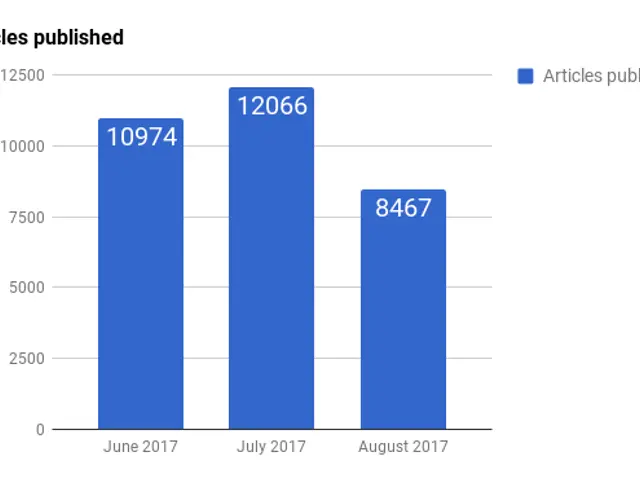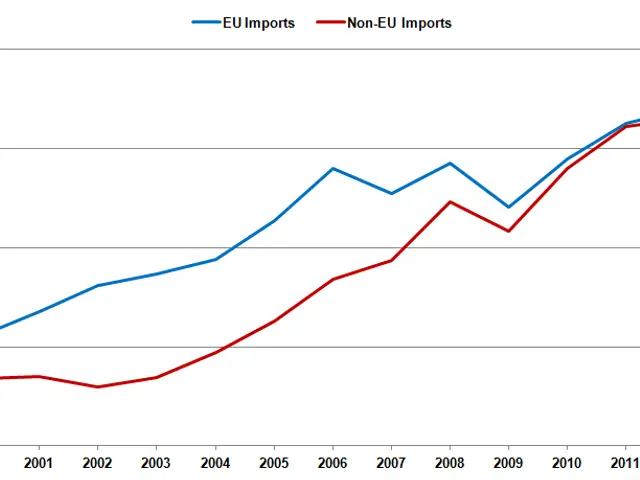Chancellor Scholz was removed from office in Germany.
In the heart of Berlin, the Bendlerblock military complex hosted a farewell ceremony for Olaf Scholz, Germany's departing Chancellor, with anti-establishment classics like "In My Life" by The Beatles, Bach, and "Respect" by Aretha Franklin, playing in the background, as per our site's reporting, citing DW.
The event was graced by German Federal President Frank-Walter Steinmeier and incoming Chancellor, Friedrich Merz. During his heartfelt speech, Scholz emphasized unity, preservation of democratic values, and autocracy contrasts. He stressed the importance of power transitions in democracies, stating such scenes are a testament of their difference from dictatorships.
As he bid adieu, Scholz extended his well-wishes to Merz, wishing him success, luck, and an "easy hand."
Reflecting upon the past, Scholz's party, the Social Democratic Party (SPD), experienced a significant defeat in the Bundestag elections, following which the government under Scholz resigned at the end of March.
It is worth noting that in December 2024, 394 deputies voted for the dissolution of parliament and the holding of new elections. The vote of no confidence failed as only 207 supported Scholz's government.
Since Donald Trump's victory in the U.S. presidential election, political tumult has gripped Germany. The fear of instability and its impact on Europe's economic security has triggered widespread concerns. This political chaos can be partially attributed to the rise of populist movements, fragmented coalitions, and strained transatlantic relations due to Trump's policies.
Internal coalition tensions and broader European security concerns, such as the Ukraine conflict and political corruption, have intensified, impacting the EU's ability to develop unified policies. However, even amidst the turbulence, Germany has continued advancing progressive policies like anti-death penalty campaigns, demonstrating a commitment to uphold human rights.
Nonetheless, concerns about military conflict and security remain high in Germany and across Europe. A significant majority fears the ongoing war in Ukraine will not cease soon, contributing to a persistent climate of anxiety. This uncertainty has complicated regional responses to security threats and economic challenges.
Be that as it may, as we bid farewell to Olaf Scholz and welcome Friedrich Merz, one thing remains clear - in a democracy, power transitions, though challenging, were never meant to be a given. Instead, they signify the enduring spirit of democratic norms and the cyclic nature of leadership that ensures the longevity of democratic institutions.
Subscribe
- Migration, war-and-conflicts, and crime-and-justice have been among the significant issues affecting Germany in recent times, with internal coalition tensions and broader European security concerns intensifying due to political chaos and populist movements.
- The ongoing war in Ukraine and political corruption have added to the EU's ability to develop unified policies, creating a climate of anxiety across Europe, including Germany.
- The fear of instability and its impact on Europe's economic security has led to widespread concerns, partially due to strained transatlantic relations due to Donald Trump's policies.
- Policy-and-legislation, such as anti-death penalty campaigns, have demonstrated a commitment to upholding human rights, while accidents like car-accidents and fires continue to be a concern for public safety.
- General-news outlets, like our site and DW, have reported on these events, providing updates and analyses of the current political landscape and its impact on democratic institutions, as was evident in Olaf Scholz's farewell ceremony, where he emphasized the importance of power transitions in democracies.








